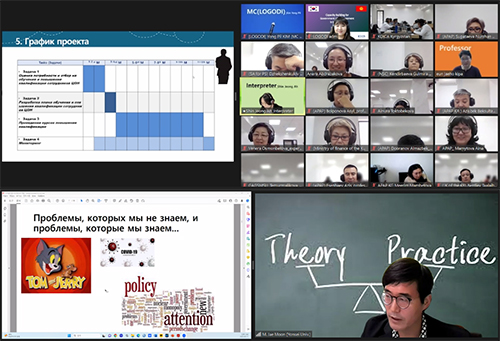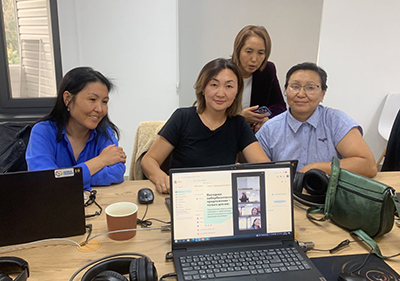Features
LOGODI Shares Cases of Innovation in Education and Training with Kyrgyz Officials

LOGODI launched the training program for Kyrgyz officials in 2018, with the first project spanning three years (2018 to 2020) and accommodating a total of 49 participants. Sponsored by KOICA, these training sessions played a crucial role in enhancing human resource management-related laws, specifically the State Public Officials Act and the Local Public Officials Act, and in refining the performance evaluation system for public officials in Kyrgyzstan.

This year's course saw the participation of 20 officials from Kyrgyzstan's central and local government, including those responsible for Human Resource Management (HRM), senior officials, faculty and field experts.
LOGODI strategically designed customized training programs tailored to the specific needs of the Kyrgyz Government. These included topics such as ▴ Korea's Education and Training and Government Innovation cases ▴ Development of Education and Training Techniques ▴ Efficient Human Resource Management, and more.

Dr. Almazbek Akmataliev, Rector of the Academy of Public Administration of Kyrgyz Republic (APAPAKR), conveyed his appreciation to LOGODI and underscored his optimism that the training would fortify the strategic capabilities of the training institution, which will allow the institution develop high quality capacity building programs in the future, ultimately contributing to national development.